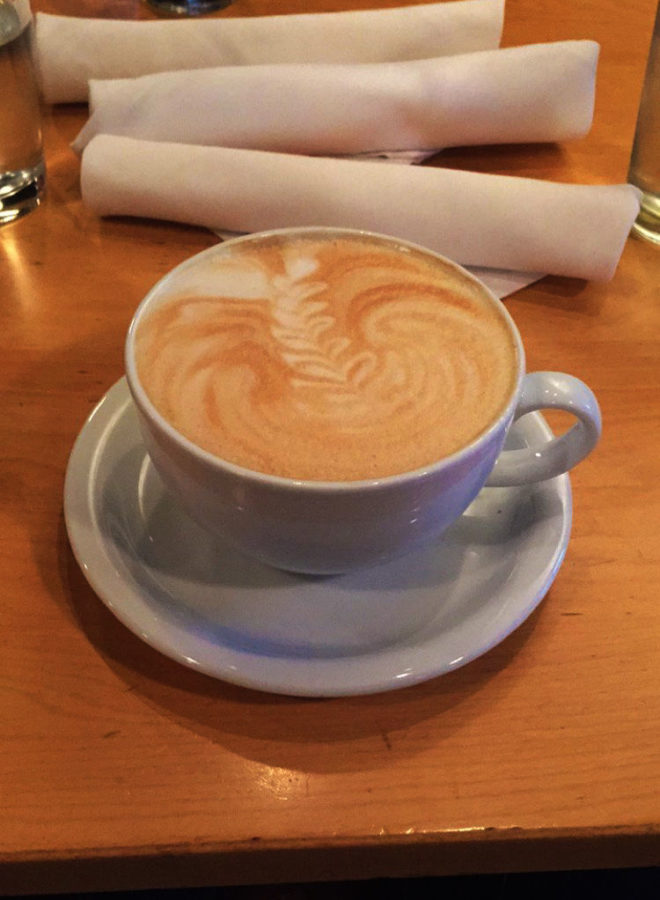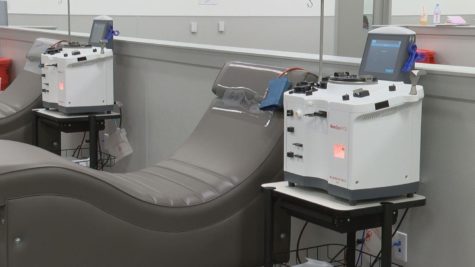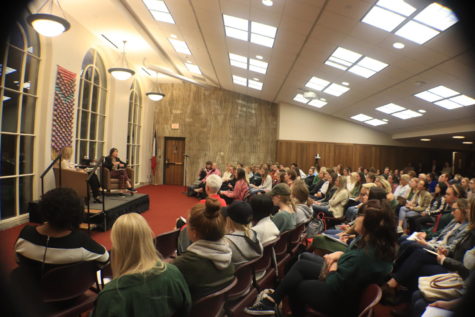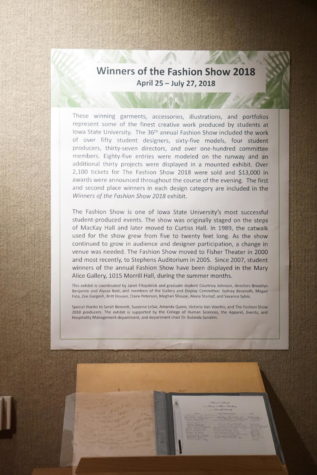What’s one more cup of joe
According to Sarah Francis, food science and human nutrition associate professor, 3-4 cups of coffee is a safe amount of coffee each day.
October 26, 2015
The busyness of school, work and extracurricular activities is mentally and physically draining. College students rely on caffeine to reenergize and make it through the day.
Many students begin their morning reaching for a K-cup or with a quick trip to Starbucks to kick-start their day. The frequency of this habit can cause it to become a daily need. In moderation, caffeine is proven to have positive health benefits. According to Dr. Sarah Francis, Food Science and Human Nutrition Associate Professor, 300-400 milligrams is a safe amount of caffeine intake per day.
“That is about 3-4 cups of brewed coffee,” Francis said. “When consumed safely, coffee can boost your energy, increase alertness and improve blood sugar regulation.”
Coffee beans are rich in antioxidants. These antioxidants protect cells from damage and have disease-fighting properties. Paired with the magnesium naturally found in coffee, it can lead to lower risk for type-2 diabetes due to the affect on blood sugar levels.
Caffeine is also an ergogenic aid, defined as a substance that enhances an individual’s energy use, production or recovery by the University of Illinois McKinley Health Center.
“Some research indicates caffeine helps effort and performance when paired with exercise,” Francis said.
For the most favorable effect, drink a cup of coffee or tea before hitting the gym she added.
It is most popular for rousing the brain and nervous system, plaguing off fatigue for a few hours. Students depend on this sustenance to both prepare for the day and pull all-nighters, studying or otherwise. This routine can lead to addiction if not kept in control.
“Caffeine is the most socially acceptable and used drug,” Francis said. “It can be very safe if consumed in appropriate amounts, but can also lead to negative health risks if taken in high doses.”
It is also classified as a psychoactive drug.
“A psychoactive drug is any substance that actively changes a person’s capacity to perceive sensory information, how they think, or how they feel versus their normal brain function,” said Dr. Auriel Willette, professor in Food Science and Human Nutrition.
The adrenaline release can temporarily affect perception, mood, consciousness and behavior. One too many cups of coffee can cause irritability, nervousness, restlessness, rapid heartbeat and an upset stomach.
With addiction comes withdrawal, and coffee and other caffeinated beverages are no exception. Those who drink more than four cups of coffee per day will start to experience the side effects of withdrawal. It becomes a physiological and psychological dependence.
“As a consequence, without caffeine, people will generally feel mildly irritable, occasionally twitchy, and tired,” Willette said. “Thus, people need to consume more caffeine to maintain the same response experienced before.”
If that’s not enough, caffeine can also affect how one sleeps.
“It is also known to change sleeping patterns, which can lead to other health effects,” Francis said.
Caffeine six or less hours before bedtime is known to upset circadian rhythms that tell the body when to sleep, according to a study in Science Translational Medicine. Lack of sleep is related to overconsumption and bad eating habits that impact your nutrition intake. The cycle continues downhill from there.
Some turn to other sources of caffeine, such as espresso and energy drinks, for a bigger boost. Many energy drinks are unregulated and contain 47-162 milligrams of caffeine per eight ounces, almost half of the recommended daily amount, according to Francis. Drinking several of these a day can multiply the negative effects and cause more serious issues, especially when paired with alcohol.
“Students are using caffeinated beverages to stay alert, but there are better, healthier ways to do that,” Francis said.
Instead of putting back another shot of espresso, try taking more breaks during long study sessions. Walking around can give a quick refresh, as well as drinking plenty of water and eating a balanced diet.

















